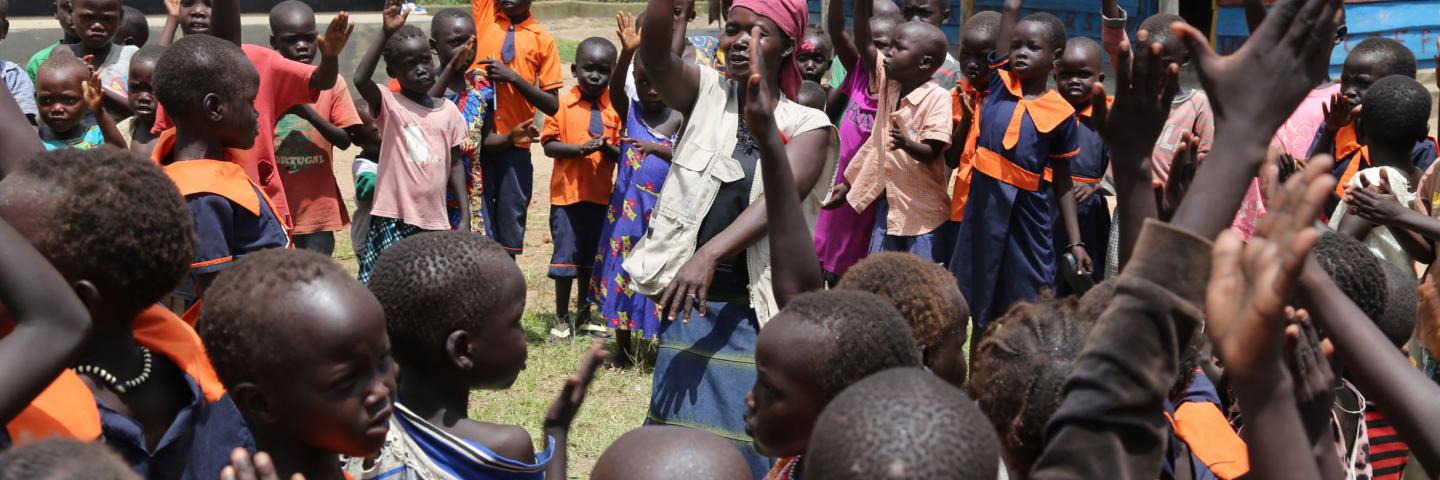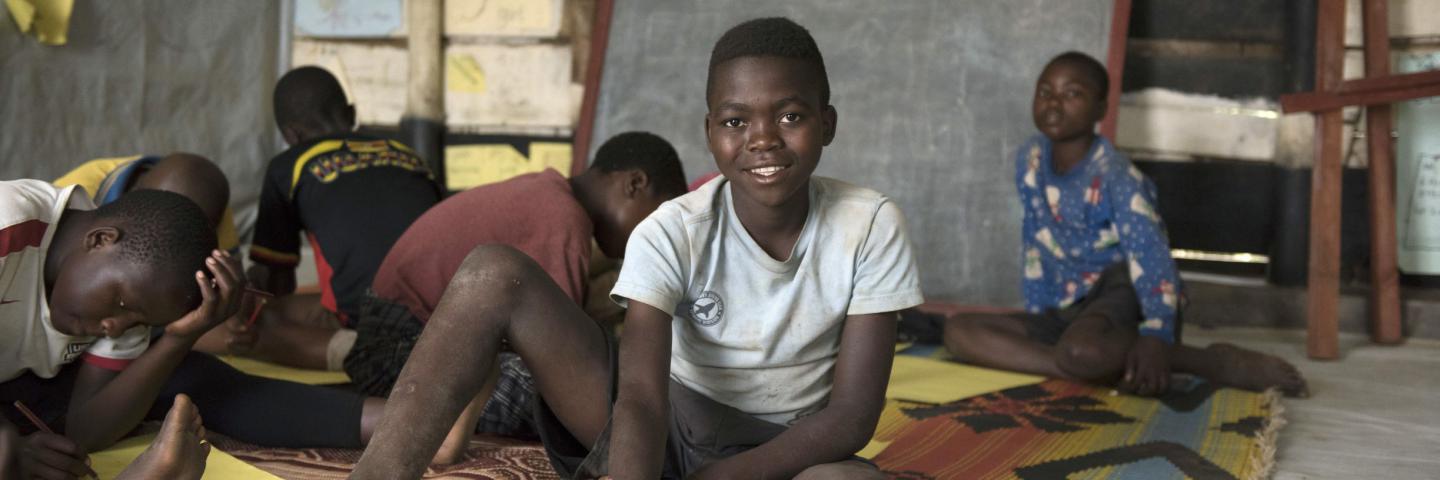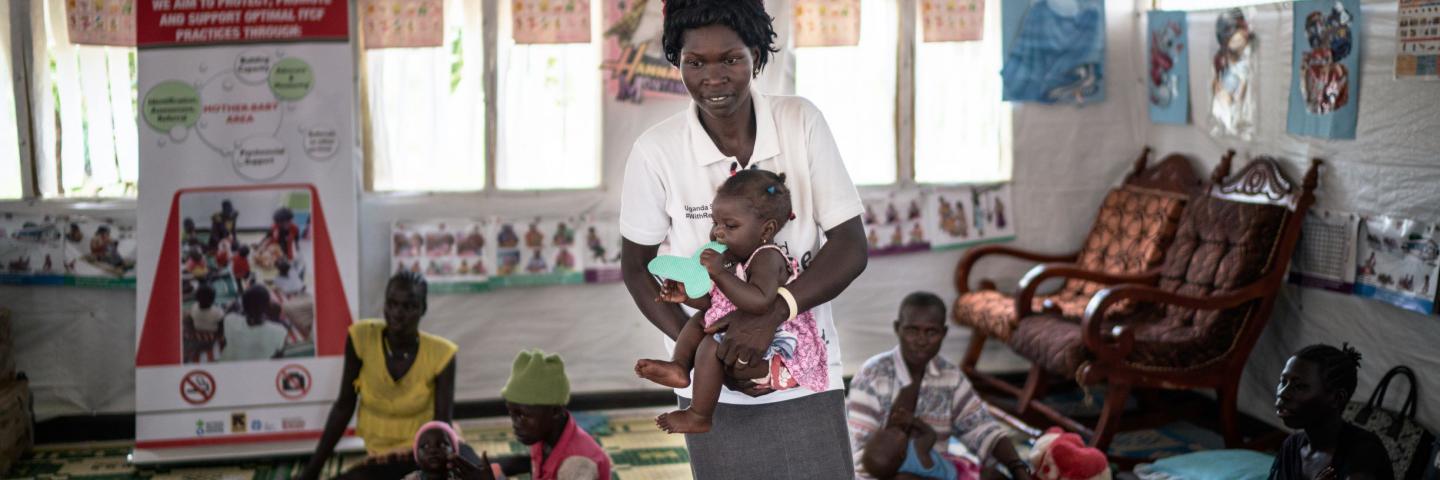

Uganda hosts nearly 1.4 million refugees - the third highest in the world - and 61 percent of them are children. Most have fled terrible ongoing conflict in neighbouring South Sudan and eastern DR Congo, and more continue to arrive every day.
Uganda’s open-door policy is recognised as one of the most progressive in the world and refugees have freedom of movement, the right to work, land and access to the same services as Ugandans. However, there are critical funding shortages, services are overwhelmed, and the humanitarian needs remain enormous. Huge numbers of refugee and host community children are still without access to healthcare, education, protection and livelihoods.
Education
600,000 refugee and host community children are still out of school. Even for those who can attend, the quality of education is poor. Classrooms are dangerously overcrowded and in need of repair, often with 2-300 children crammed into each class or under trees in the hot sun. Many speak multiple different languages in the same classroom. Literacy and numeracy levels are well below expected standards, and in such conditions it is difficult for children to learn effectively.
We are constructing new classrooms and other vital facilities; running Early Childhood Development (ECD) centres for pre-school children; training teachers; supporting primary schools; and running Accelerated Education Programmes to help adolescents who dropped out of school to complete their primary education.
READ: I dreamed of going to school again
Save the Children supported the government of Uganda and partners to develop the Education Response Plan for refugees and host communities - the first of its kind worldwide. If funded it could provide quality education for 567,500 children.
Child Protection
Many refugee children have experienced or witnessed horrific violence. We run Child Friendly Spaces where children have a safe place to play, socialise and learn basic skills, and where they can access psychosocial support.
Our teams of case workers identify the most vulnerable children and ensure they get the specialist support they need – such as children with disabilities, survivors of sexual violence, children with mental health needs, or children on their own or orphaned. More than 36,000 refugee children have arrived in Uganda unaccompanied or separated from their families. We work to reunite them with relatives wherever possible, or find alternative care if needed.
WATCH: How we're supporting unaccompanied children like Nyotte
LOOK: Child refugees draw their hopes and horrors on polaroid portraits

Health and nutrition
We run Infant and Young Child Feeding (IYCF) programmes to improve the survival and growth of young children, and Mother and Baby Area (MBAs) where pregnant and lactating women can get support and advice on breastfeeding. We support health clinics that treat children for deadly illnesses such as malaria and pneumonia and provide antenatal and postnatal care. We also work to increase youth and adolescents' access to Sexual and Reproductive Health (SRH) services, targeting young people most at risk of pregnancy, HIV and sexual and gender-based violence.
WATCH: Isabella - a breastfeeding champion at the Mother and Baby Area
LISTEN: Podcast: The women who left everything behind
Youth livelihoods and child poverty
Most refugees still live in poverty and food insecurity, dependent on humanitarian assistance. Refugees have limited access to land or agricultural technology, and few non-agriculture livelihood options. Young people are increasingly frustrated at the lack of opportunities, and are pushed into risky or environmentally damaging activities.
We provide vulnerable families with the skills training and investment they need to set up small businesses and pursue sustainable livelihoods, and help link them to financial services. We also run cash for work projects that provide employment for working on services that benefit the whole community, such as repairing roads or planting trees.
READ: Cash for work helps vulnerable refugees support their children
Innovation
Save the Children hosts the Response Innovation Lab which brings a range of actors together to develop new ideas and solutions to address some of the biggest challenges in the response.
Read: How gaming technology is improving learning in northern Uganda
